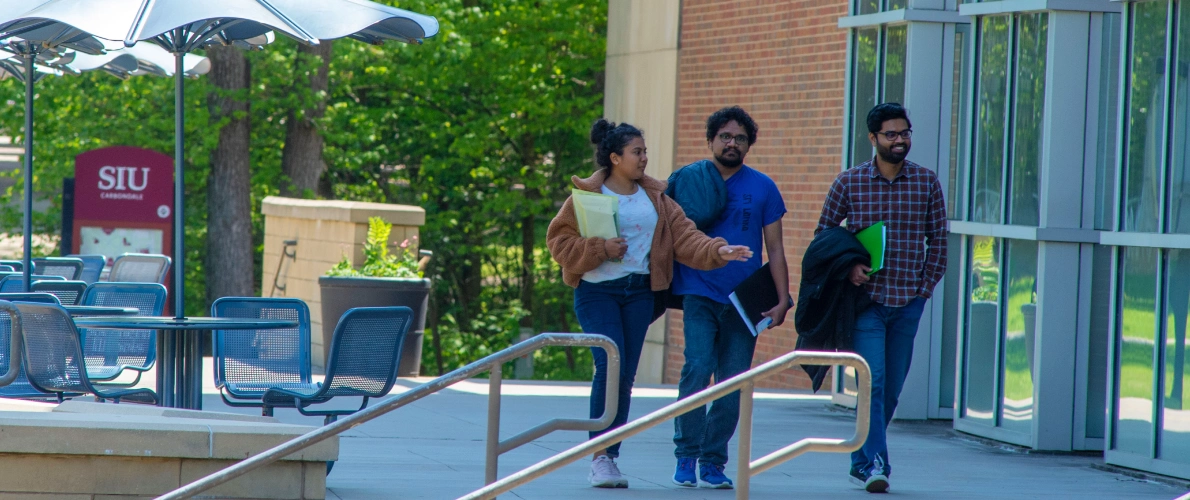Main Content
Doctor of Philosophy in Sociology

A distinguishing feature of our program is the supportive atmosphere we foster. Ours is a rigorous program with high expectations -where you are an individual whose unique interests and goals matter to us.
As a doctoral student, you'll have access to resources for quantitative and qualitative research. We are a member of the Inter-University Consortium for Political and Social Research (ICPSR)—a membership which gives you access to data sets on domestic and international issues related to the economy, education, family, gender, and health. This and other tools make it possible for you to approach almost any topic appropriate for sociological study. Our well-rounded faculty are prepared to mentor doctoral students into the professional academic world.
Degree Requirements
In this program you’ll work with the Director of Graduate Studies to initially formulate a plan of study and later you will work with your dissertation chair. You’ll gain a foundation of research tools, including statistics and qualitative data analysis. You’ll take at least four topical seminars in addition to the required research tool courses. See the catalog for all details, deadlines and other crucial information.
As part of your degree, you'll encounter two significant milestones. The first is the Doctoral Comprehensive Exam, designed to showcase your sociological insights and evaluated by two faculty members. This exam involves discussing a chosen article and providing 15 pages of commentary, emphasizing your summarization, discussion, critique, and ability to present alternative theoretical/methodological arguments. Typically taken within the first or second year, it sets the stage for your academic rigor.
The second milestone is the Substantive Comprehensive Review Paper, a test of your critical thinking and writing skills within a Sociology subfield relevant to your future dissertation. Approximately 40 pages in length, outcomes range from High Pass to Fail, potentially involving the same committee as your dissertation. Alongside these, you'll engage in coursework, annual faculty reviews, maintain a dossier, and begin forming your dissertation committee, culminating in the dissertation itself – the cornerstone of your doctoral journey, from prospectus to oral defense, with a bound copy archived in the program library
![]() This graduate program can be accomplished by fulfilling the requirements for the Doctor of Philosophy degree. a full View all related graduate courses.
This graduate program can be accomplished by fulfilling the requirements for the Doctor of Philosophy degree. a full View all related graduate courses.
Crime, Deviance, Criminal Justice Emphasis
Doctoral students in Sociology with a particular interest in the field of criminal justice and choose a formal emphasis in the field. You’ll choose from a series of required courses, some from the Criminology and Criminal Justice area and some from Sociology. Topics include: Criminological Theory, Seminar in the Sociology of Deviance and Social Control, Seminar in Theory and Practice of Crime Prevention, Seminar in Juvenile Justice and Delinquency, Seminar in Policing, and other topics.
Sociology as a Secondary Emphasis in Another Ph.D. Program
We welcome students from other doctoral programs who want to declare Sociology as a secondary area. You’ll need to contact the Director of Graduate Studies, and provide a written request which includes a plan of course work, a personal reading list, and an overall program statement explaining how Sociology relates to your overall degree program.
Interdisciplinary Ph.D
We encourage students to tailor their doctoral degree relating to their career aspirations. Accordingly, we will support students in Sociology who want to form an interdisciplinary degree as long as the other degree program is also a doctoral degree-granting program. An interdisciplinary degree with Sociology as the sponsoring program will see substantial involvement in Sociology courses and seminars and the other program may require a similar level of involvement in its courses and seminars.
Fellowships & Scholarships
SIU grants scholarships and other financial aid to graduate students. In addition, our program offers the David L. Briscoe Book Scholarship for Graduate Students in Sociology to help offset the cost of textbooks and other research materials, and the J. Mark Wehrle Dissertation Scholarship in Sociology to support dissertation research related to social or other economic injustice.
Teaching and research assistantships are available. These are competitive. For more information about graduate fellowships and about financial assistance programs can be found on the Graduate School Website.
Certificate in Women, Gender & Sexuality Studies
If you are interested in a post-baccalaureate certificate in Women, Gender and Sexuality Studies (WGSS), you should contact the Director of WGSS for the required courses and guidelines. The program encourages Sociology of gender/sexuality students to pursue the certificate and doing so works well within the doctoral program, especially if one course is taken during the M.A. in Sociology program.
Sociology Graduate Student Association
This is a student organization of future academics and professionals with a shared interest in all things related to sociological study from topics benefiting from sociological examination, including current and often controversial topics in our nation and internationally to methodology and theory. We are a supportive group, bringing the power of friendship and professional collegiality to scholarship.
Contact Information
To learn more about the sociology program, or to request additional information and/or materials, please contact:
Rachel B. Whaley
Director of Graduate Studies
Faner Hall 3434
1000 Faner Drive
Carbondale, IL 62901
618-453-7631
rwhaley@siu.edu




